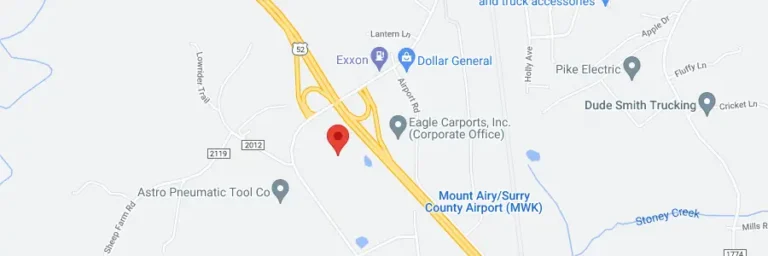The placement of your metal building, whether it's a workshop, garage, or carport, is more…
Metal buildings are growing in popularity for use in home-based businesses, commercial buildings, and storage sheds. While any licensed electrician can offer you residential service, free-standing metal structures require specific expertise when it comes to safety and compliance.
Before your electrician can wire up the metal building safely, it's important to discuss the intended use and capacity of the space, along with the power supply and tools needed to do a proper job. While a simple extension lead may work if you just need to run the occasional power tool, a full-time workshop or commercial building will require multiple circuits, a sub panel, proper grounding, and a ground fault circuit interrupter (GFCI).
Working with an Electrician
Choose an electrician that has the right certifications and experience. Ask for proof of certifications and make sure the company or electrician has at least one of the following certs:
- CESW or other certification from the National Fire Protection Association
- Check on the state licensure of the company and the individual: LicensedElectrician.com
- Use an electrician who has experience in new construction.
A licensed electrician will make sure your electrical system meets all required safety codes in your area. While red tape often gets a bad name in the construction industry, when it comes to electricity, it always pays to be careful.
Incorporating Solar Power
If you want to install solar power on your metal building, you’ll be able to save money on your electric bill and take advantage of federal and local tax savings, the installation process can get a little complicated. Work with an electrician who has experience with solar. Improving the energy efficiency of your metal building will deliver cost savings in the long run, especially when it comes to utilities.
GFCI
GFCI (ground fault circuit interrupter) is the best way to monitor the electricity flowing in each circuit and instantly shut down the system whenever there is an unwanted current variation. While a circuit breaker or fuse can also detect fluctuations, a GFCI is much more sensitive. Grounding is also critical for a metal shed, with earth rods and other parts needed to ensure equal potential between the supply earth and the true earth of the building structure.
Along with installing a GFCI, there are lots of simple precautions your electrician should take to prevent electrical accidents in your free-standing metal building.
- Replace or repair frayed cords immediately
- Always use recommended wattage fixtures and appliances, and never use electrical appliances in damp locations
- Invest in an electrical system that is designed to meet your exact usage requirements
Pest Control
If you are concerned about the electrical safety of your free-standing metal building, pest control is a must. Rodents will chew on electrical cords of all kinds, causing an electric outage, tripping a security alarm, or expose the hot copper wire to a flammable surface, starting a fire. Once your building is up and running with electricity, work with a reputable pest control company to prevent rodents from damaging your building.
Moisture Control
Brand new metal buildings are designed and installed with tightly fitting seams that will resist precipitation from rain and snow storms. Talk with your building manufacturer and other contractors about waterproofing at the foundation level to keep out water. Metal buildings are structurally sound, but if you live in a wet climate, consider investing in extra waterproofing and sealing to protect your electrical system from water damage.
With these tips, you should be ready to begin the process of adding electric to your metal building. Take your time and let the experts guide you; the safety of your metal building the most important consideration.
At Metal Carports, we also offer products such as Metal Buildings, Metal Carports, Metal Garages, Metal Barns, Metal RV Covers, and much more!

